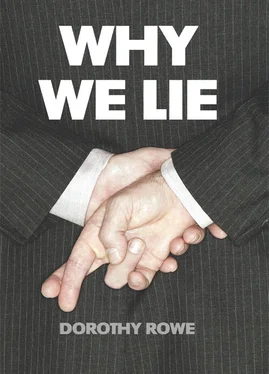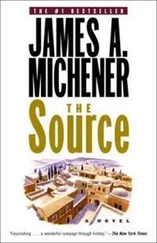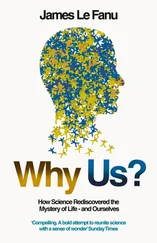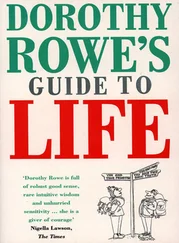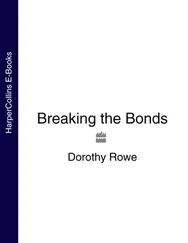When we arrive I’m completely taken aback at the former PM’s appearance, for he resembles a bad actor playing Blair in the grip of some awful psychiatric meltdown. He really does look quite mad, with his face all over the place – a grotesque dance of eyebrows and teeth, manically gurning away, every feature in permanent motion – beside which Mandelson looks like a vision of poised sophistication. There are warm greetings, and as I’m introduced Mandelson pretends I’m there to shadow Blair, provoking another great jerky grimace. 1
Blair, Bush and Cheney made the grave mistake of forgetting that everything we do has a whole network of consequences, most of which we never anticipated. Even when we get what we wished for, it is never quite what we wanted. The lies we tell might protect us in the short term, but, in the long term, the consequences can be disastrous. When we lie to ourselves, we multiply a thousandfold the inherent difficulties we have in trying to determine what is actually going on inside us and around us. Good relationships are based on trust. When we lie to others, sooner or later, our lies will become apparent, and trust is destroyed.
On his twenty-third birthday in 1978, Timothy Garton Ash drove to West Berlin and some time later went to live for a while in East Berlin where he soon attracted the attention of the Stasi, the secret police. When the Berlin Wall fell in 1989 the Stasi files were opened, and those who had been spied upon could apply to see their own file. Garton Ash read his own file, and from that the files on those who had spied on him. All of those who had spied on him were ordinary Germans whom he had met, sometimes socially, sometimes in connection with his research for his doctoral thesis on Berlin under Hitler. One of the spies was code-named Michaela. She had been director of the Weimar Arts Galleries. After studying his and Michaela’s files, he went to see her. During their conversation it became clear that the Stasi had tempted her with promises of trips to art galleries outside East Germany, places where few East Germans were allowed to go. She let herself be seduced, and pretended to herself that what she was doing was harmless. She must also have told herself that no one would ever know. She had not learnt from history that all tyrannies eventually come to an end. Amongst those she spied on were her daughter and her step-daughter, and the men with whom they were associated. When the Wall came down her step-daughter read her own file, and severed her ties with her step-mother. Garton Ash did not record what Michaela’s daughter did when she discovered that her own mother had spied on her, but we can surmise. 2
Relationships can be very complicated, and consequently many people limit the number and kind of people to whom they will pay attention. Some people decide that, ‘Anyone who isn’t family doesn’t count’, or, ‘I don’t want to have anything to do with anyone who isn’t the same nationality as me.’ People who decide to treat as important only those who are family, or those who share their nationality, religion, race, class live in what Gillian Tett calls ‘silos’, those huge, windowless cylinders that stand, often in complete isolation, perhaps full of wheat, perhaps empty, beside a single rail track in the Australian Outback.
Gillian Tett is Capital Markets Editor of the Financial Times and winner of the British Press Award 2008 for the business journalist of the year. She was one of the few people who predicted two years ago the collapse of the world’s financial system. Five years ago when all the talk in the City was about mergers and acquisitions, and the equity markets, she became interested in collateral debt obligations (CDOs) and credit default swaps (CDSs), the products that proved to be the bad debts acquired by banks and building societies. Tett had trained as an anthropologist. In an interview, she explained how anthropologists are trained to think holistically.
You look at how all the bits move together. And most people in the City don’t do that. They are so specialized, so busy, they just look at their own little silos. And one of the reasons we got into this mess we are in is because they were so busy looking at their own little bit that they totally failed to understand how it interacted with the rest of society. Bankers like to imagine that money and the profit motive is as universal as gravity. They think it’s basically a given and they think it’s completely apersonal. And it’s not. What they do in finance is all about culture and interaction. 3
Everything in the world is connected to everything else. In early 2009 the car industry was in trouble. The demand for new cars had dropped to its lowest levels, as people faced their own individual financial crisis. News reports spoke of ‘the American car industry’, ‘the Japanese car industry’, and the like, as if these were discrete industries, but they were not. The car industry is a global industry. For instance, in the motor industry in 2009, Fiat provided diesel engines to Mercedes for use in commercial vehicles. GM built Fiat diesel engines under licence for use in Vauxhall, Opel and Saab cars. Peugeot Citroen provided diesel engines for Ford vehicles and used BMW petrol engines in its Citroën and Peugeot cars, while running Joint Venture programmes for shared small cars with Toyota and commercial vehicles with Fiat. 4
In January 2009, the World Economic Forum met in closed session at Davos in Switzerland. Tim Weber, the Business Editor for the BBC website, was allowed to report what was said, but not who said it. There was general agreement that the root causes of the crisis were ‘too much debt, a culture of short-term rewards for long-term risk-taking and fatally flawed mathematical models. And plain old greed.’ One speaker who did allow his name to be used was Nassim Nicholas Taleb, a former derivatives trader and now writer, who said, ‘Derivatives trading is all about how to make a bonus and how to screw your client.’ It became clear that, ‘Financial institutions took on debt worth 40 times their assets – and failed to understand how risky this was.’ 5When financial institutions became computerized, they acquired software that produced ‘models’ that purported to predict the outcome of certain financial activities, that is, what risk was being run by these financial activities. The model was an abstract concept called value at risk (VAR). When VAR included the kinds of crises that occur once in a lifetime, the result would suggest that the venture to be undertaken was far too risky. If once-in-a-lifetime crises were not included, the result suggested that it was fine to undertake what Paul Mason, Economics Editor of BBC Newsnight , called ‘suicidal risk-taking’. 6This was the kind of risk-taking that financial institutions preferred. After all, it won’t happen, will it? But it did.
The unexpected often happens in private and public life. Everyone should know that from their own personal experience. Yet many people tell themselves the comforting lie, ‘My actions will have limited consequences . ’ We learn as children that small actions can have surprisingly large and unexpected results, yet in adulthood many people pretend that they never knew this. When three windows of Sir Fred Goodwin’s large home were smashed, as was the rear window of his Mercedes parked in the driveway, Sir Fred was reported to be ‘shaken’. Why would people do a thing like that? Sir Fred, when head of the Royal Bank of Scotland, had plunged the bank into ruinous debt, resulting in the bank having to be propped up by £20 billion of public money. When he resigned, he could see no reason why he should not keep his £3 million tax-free lump sum as well as his £700,000 a year pension. 7Why would that lead to people feeling so angry that they destroyed his property? When people tell themselves, ‘My actions will have limited consequences’, they have usually already constructed a fantasy about what those limited consequences will be. Perhaps Sir Fred had a fantasy about a very pleasant early retirement with a few lucrative directorships and the occasional attendance at some committee of the Great and the Good. Apparently, Sir Fred had no idea that some people might hate him so much they would try to harm him, nor that for the rest of his life he would be pursued by the paparazzi. In March 2009 the world’s media were offering the top price for a photograph of Sir Fred relaxing. By August he was back in Edinburgh. According to Phillip Inman of the Guardian , writing in October 2009, ‘He has turned to PR experts to rebuild his reputation, as yet to no avail.’ 8
Читать дальше
